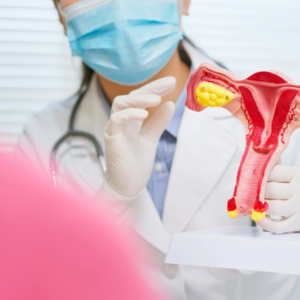What to Eat for Menopause: Foods to Avoid for Optimal Health and Wellness
It is a natural part of life, but the symptoms can be difficult to manage. Knowing what to eat for menopause will help many of the symptoms. While there are numerous tips and tricks to manage the effects of menopause, one thing that can help us all make it through is eating right. Our diets can have a major impact on how we feel during this transition in our lives, so let’s take a look at some foods to avoid during menopause for optimal health and wellness.
Processed Sugars and Refined Carbs
Menopause is a stage in life that can be difficult for many women to navigate. During this time, it is especially important for women to pay attention to what they eat and limit their intake of added sugars and carbohydrates. This is because increased consumption of these foods can lead to a range of health problems associated with menopause, such as weight gain, mood swings, fatigue, and hot flashes.
Consuming too much sugar and carbohydrates causes an increase in blood glucose levels, which can then lead to insulin resistance. Insulin resistance can cause symptoms like fatigue, which many women experience during menopause. Additionally, high levels of insulin paired with low estrogen levels common during menopause can worsen the already-existing metabolic changes related to aging. As a result, if left unchecked too much sugar and carbs can contribute to weight gain during this period of life.
When going through menopause it is also important to watch how much sugar and carbs one consumes due to their impact on hormones. Increased obesity rates are linked with higher testosterone levels in pre-menopausal women—which can make hot flashes worse—as well as lower estradiol levels which may trigger early onset menopause symptoms or make them more intense. As such, limiting added sugars and carbohydrates is important for keeping hormone levels balanced during this time period.
Overall, it is essential for women to keep track of their dietary intake when going through menopause by limiting their intake of sugary foods and refined carbohydrates in order to maintain good health and balance the body’s hormones naturally. Doing so may help reduce some of the uncomfortable symptoms so commonly experienced during this transitional phase in life.
Saturated Fats
Saturated fats should be avoided during menopause because they can increase inflammation throughout the body, leading to an overall feeling of discomfort. These fats are also known to increase cholesterol levels and are linked to an increased risk of heart disease—something that no one wants during their menopausal years! Stick with unsaturated fats like olive oil or avocado instead.
Red Meat
Red meat, including beef, pork, lamb, and veal, can be a beneficial part of the diet for women in menopause. However, there are some reasons why eating red meat may not be ideal during this period.
First of all, red meats are typically high in saturated fat, which has been linked to an increased risk of heart disease and stroke.
Additionally, some red meats contain hormones that may aggravate any hormonal issues already associated with menopause. Furthermore, as women enter menopause they are at a higher risk of developing conditions such as osteoporosis and diabetes; both of which can be exacerbated by an excessive amount of red meat consumption.
Therefore it is best for women going through menopause to consume lean cuts of red meat or plant-based sources of protein instead.
Eating fish or poultry twice a week can help provide the necessary protein without the risks associated with too much red meat intake.
The Good News
When wondering what to eat for menopause, a balanced and nutritious diet can help women manage these risks and alleviate menopausal symptoms. Here are some foods that women going through menopause may want to consider adding to their diet:
Calcium-rich foods: As women age, their bones can become weaker, making them more susceptible to fractures. Calcium-rich foods such as milk, cheese, yogurt, tofu, and leafy greens can help maintain bone health.
Vitamin D-rich foods: Vitamin D helps the body absorb calcium and can also improve muscle function. Foods such as fatty fish, egg yolks, and fortified cereals can provide vitamin D, or it can be obtained from sunlight exposure.
Whole grains: Whole grains such as quinoa, brown rice, and whole wheat bread are rich in fiber, which can help regulate digestion and reduce the risk of heart disease.
Fruits and vegetables: Fruits and vegetables are rich in vitamins, minerals, and antioxidants, which can help reduce the risk of heart disease and cancer. They also provide fiber, which can help regulate digestion.
Lean protein: Lean protein sources such as fish, poultry, beans, and nuts can provide important nutrients without adding excess fat or calories to the diet.
Water: Staying hydrated is important during menopause, as it can help alleviate hot flashes and reduce the risk of urinary tract infections. Women should aim to drink at least 8 cups of water per day.
In addition to these specific foods, women in menopause may also want to limit their intake of caffeine, alcohol, and spicy foods, which can exacerbate hot flashes and other symptoms. They should also speak with their healthcare provider about whether supplements or other dietary interventions may be appropriate for their individual needs.







